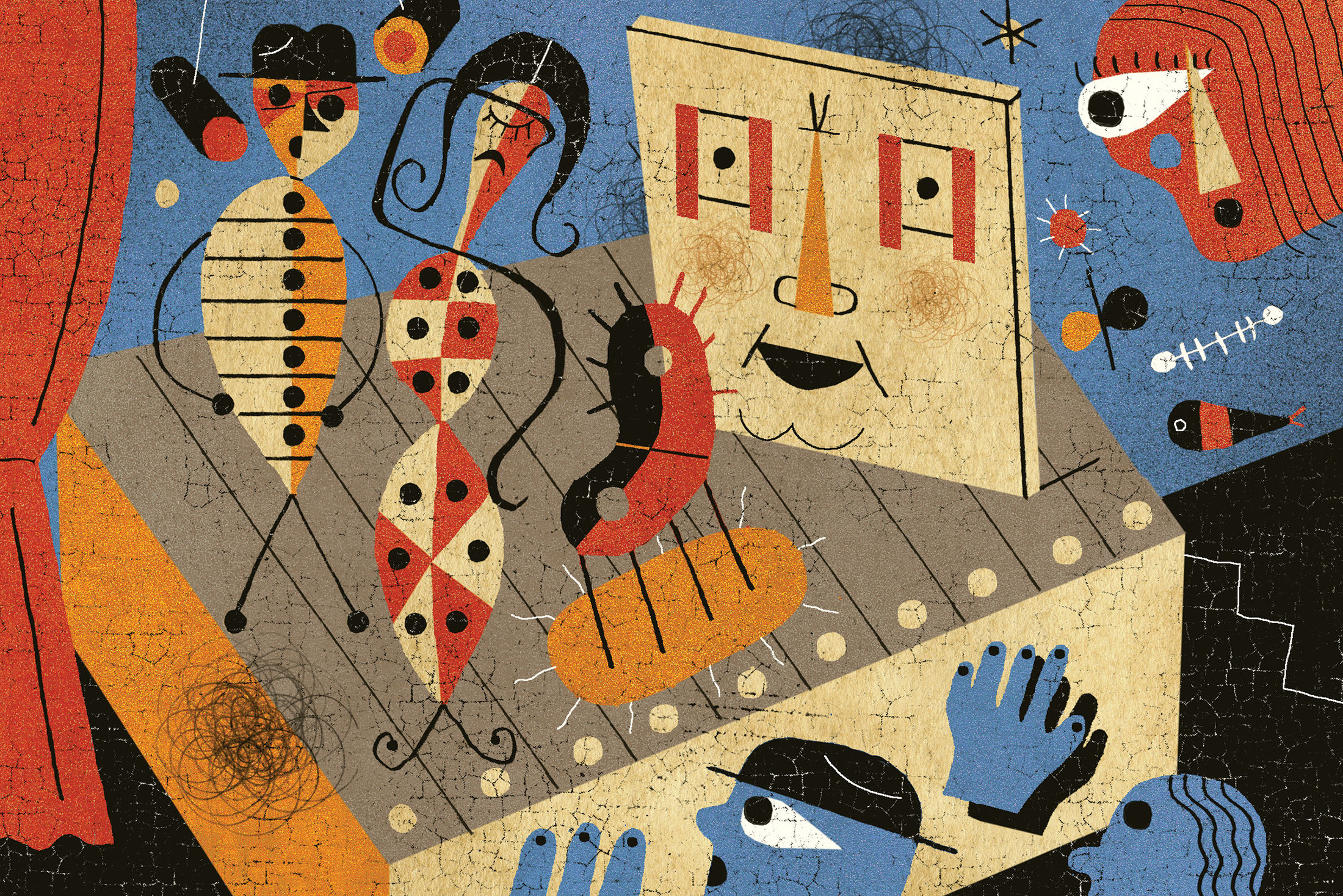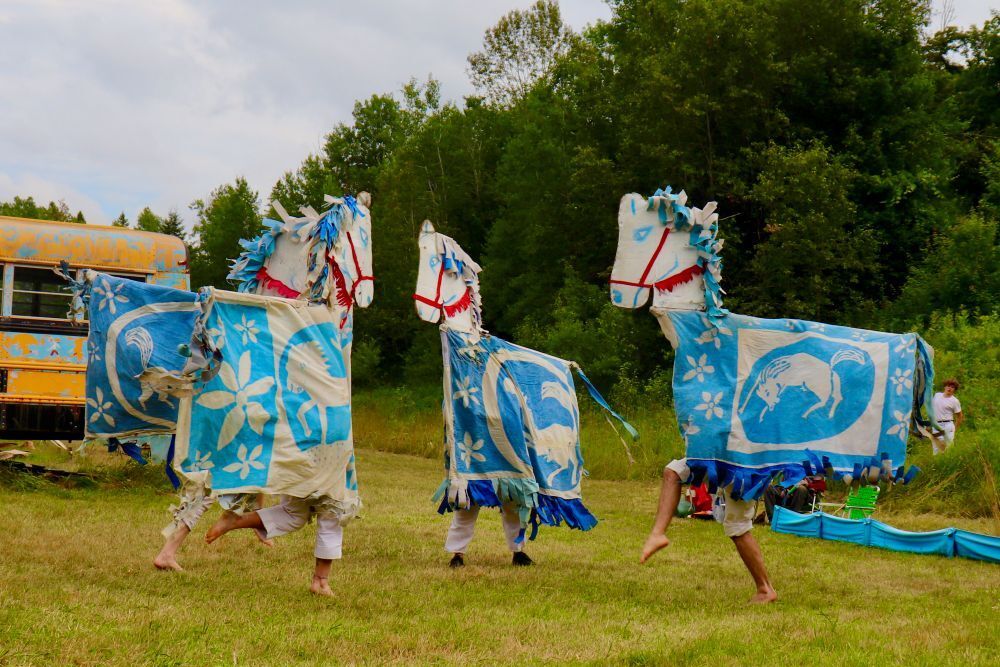This Local Improv Group Proves Houston Is a Comedy Powerhouse

Can't Tell Us Nothing was founded in Houston over a meal at Velvet Taco.
What cities come to mind when you think of comedy? Chicago, of course. New York and Los Angeles, too. Branson, Missouri—the so-called “Live Entertainment Capital of the World”—for those of certain tastes, and Las Vegas for those of the opposite appetites.
Houston deserves a spot on this list. With our world-class performing arts scene, it makes sense that the swamp also nurtures comedic talent that holds its own next to the Upright Citizens Brigades and Second Cities out there. So much so that Houston-based improv troupe Can’t Tell Us Nothing (CTUN) has gone on to grace these legendary stages and has shown the national comedy scene everything they’re missing down here on the Third Coast.
Amechi Ngwe, Tandiwe “Tandi” Kone, Antoine W.B., and Jon Myles represent the best of the best of Houston improvisers—and that’s hardly hyperbole when polling their fellow comedians. After the musical improv duo Ophelia’s Rope, CTUN is the city’s second longest-running independent improv troupe, founded over a meal at Velvet Taco in 2015.
Despite claims that there is no “true leader” of the group, with everyone doing their part in scheduling shows and rehearsals, networking, and connecting with the community, Kone, W.B., and Myles all give credit to Ngwe for bringing the team together and assuming a leadership role when necessary.
“The idea was sparked by watching these beautiful, wonderful improvisers perform all the time and thinking ‘I want to perform with them!’” Ngwe says. “Eventually it got to a point where it was just like, Hey. You guys are all funny Black people. Let’s do a funny Black troupe.”
CTUN met at Station Theater, the improv and sketch comedy venue that recently celebrated its 10th anniversary. They graduated from the theater’s conservatory program around the same time, and participated in jams (informal improv sessions open to the Station community) and the Lotería show (a Friday night Station staple where the on-stage cast is selected randomly from consenting audience members). Along with appreciating one another’s work while watching shows, such participatory events allowed them an opportunity to notice and strengthen their stage chemistry before forming an official troupe.
“We did something a bit unique from other troupes I’ve seen. We rehearsed and rehearsed and rehearsed before we submitted for a show. We wanted to make sure that we felt good, that we felt comfortable, that we liked the format, and then we put in for a show,” says W.B. “That was like a six-month process.”
The concept of “rehearsal” probably sounds odd for a theatrical form known for having no script, but it’s actually standard for improv troupes, even those who didn’t wait six months before making their debut. In CTUN’s case, biding their time allowed them to focus on their strengths as both individuals and as a team, and let them be, as Myles describes, “really organic about it.”
A typical set for the troupe starts off with some back-and-forth discussion with both the audience and one another. The team mines inspiration from these talks, then crafts scenes around their creative discoveries. Subverting expectations and playing bait-and-switch with the internal realities is a specialty of theirs, largely because it’s what they themselves find funny.
Such a format adapts well to audio formats. CTUN found themselves joining the Houston-based Mocking Bird Network and adding podcasting and a radio show at 92KELZ to their oeuvre in 2018, according to Kone, “as one more way to spend time together.” Comedian Matt Besser’s improv4humans competition began one of its initial rounds at the troupe’s original Station Theater home. They entered and started winning round after round before eventually clinching the final victory.
“I think the Houston love gave us a lot of confidence,” Myles says.
As a prize, the team flew to New York to record a live episode of the improv4humans podcast with Besser and Jason Mantzoukas (Brooklyn Nine-Nine, The Good Place) during United Citizens Brigade’s Del Close Marathon.
“I’ve always believed that we have great talent here in Houston,” says W.B. “LA, Chicago, New York, they’re all hubs. I’ve been to those places and performed in festivals with other groups and I’ve seen some of the talent out there. And I came back and thought, Yeah, we got some of that here, too. Us doing well in the contest and winning it just further solidified that Houston can hold its own on a national level when it comes to improv.”
Yet despite their high-profile and national opportunities, CTUN still centers all of their focus and resources on supporting promising comedians here in Houston, particularly among the Black community. They’ve performed regularly at Alief’s Hastings High School for Black History Month. Prairie View A&M recently invited CTUN to teach a six-week improv workshop where students could earn extra credit in communications. Several of the participants joined the team for a final show at the school’s library. Ngwe, Kone, Myles, and W.B. hope to someday bring this offering to more HBCUs in the future.
All four CTUN members are also now teaching classes at Station Theater, circling back to where they initially trained and met.
“Finding and identifying talented African-American or Black improvisers has been one of the central pieces to my commitment to this. I appreciate having that community and that shared experience that makes performing improv so much more comfortable and enjoyable for me,” says Kone. “African American performers or kids out there are like, Oh I might be interested in improv! Everybody talks about stand-up, not very many people are talking about improv. I’m very excited to be a part of that as a Black woman from Houston.”
Representation is a major cornerstone of CTUN’s overall ethos, but so is an overall love and devotion to the art of improv. Even when the COVID-19 pandemic shut down comedy clubs and theaters across the country, the troupe met once a week to record shows remotely from their respective homes. This kept their skills sharply honed so they were able to hit the stages upon reopening without missing a beat.
“The throughline to this is dedication,” Kone says. “We just don’t stop. We may take breaks for life events, but it just doesn’t stop. We have not stopped since we started. I’m sure that that’s why things have worked out the way they have for us.”




